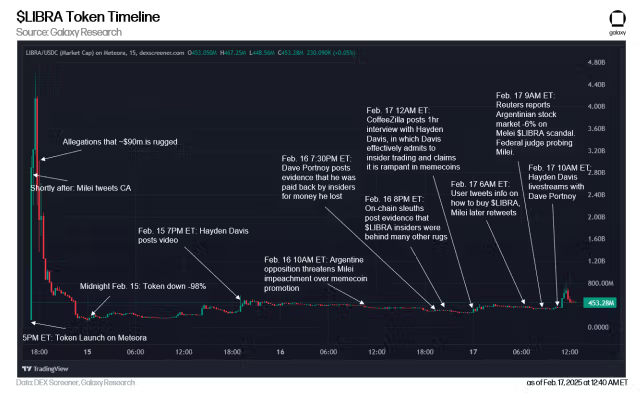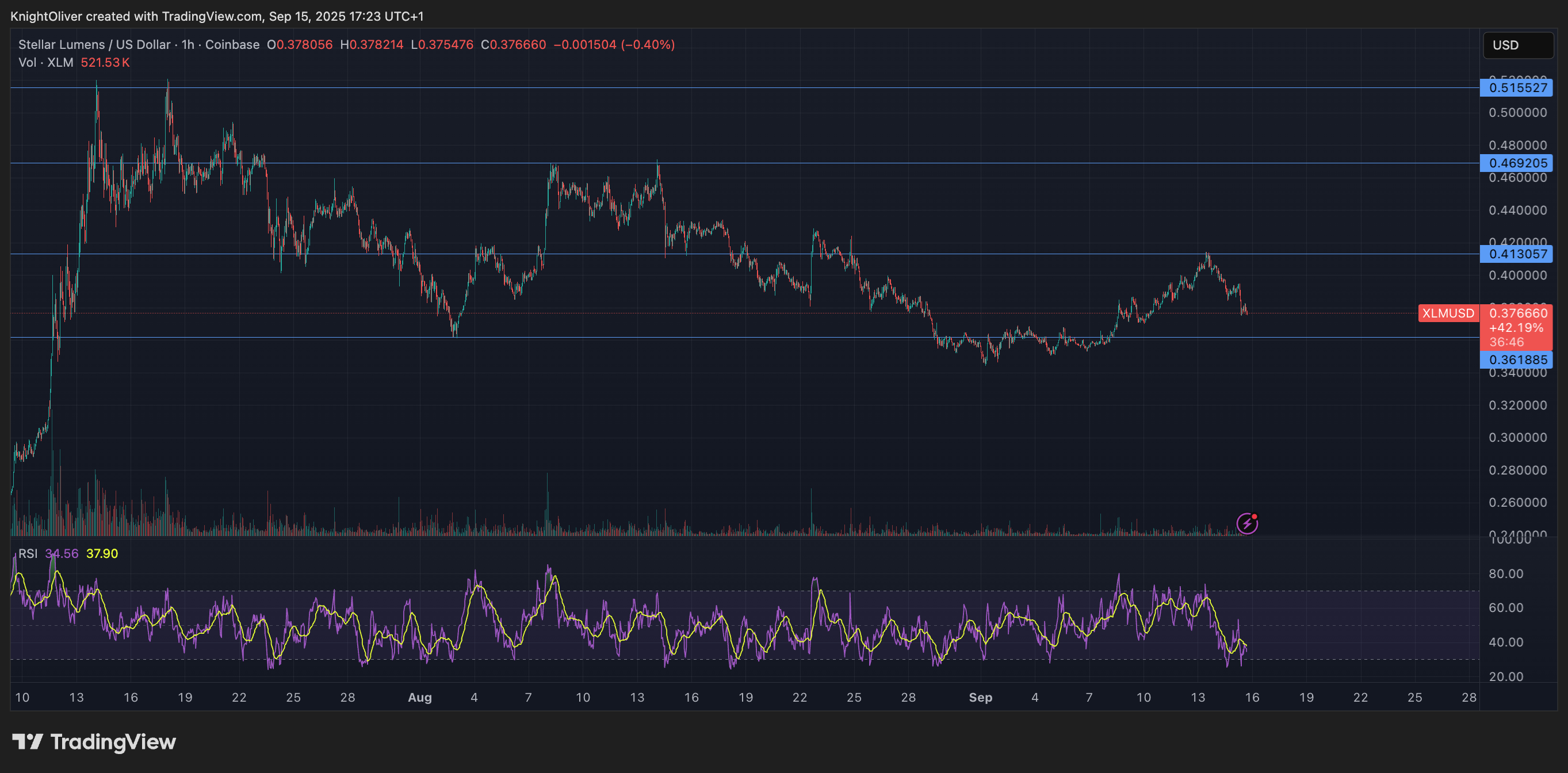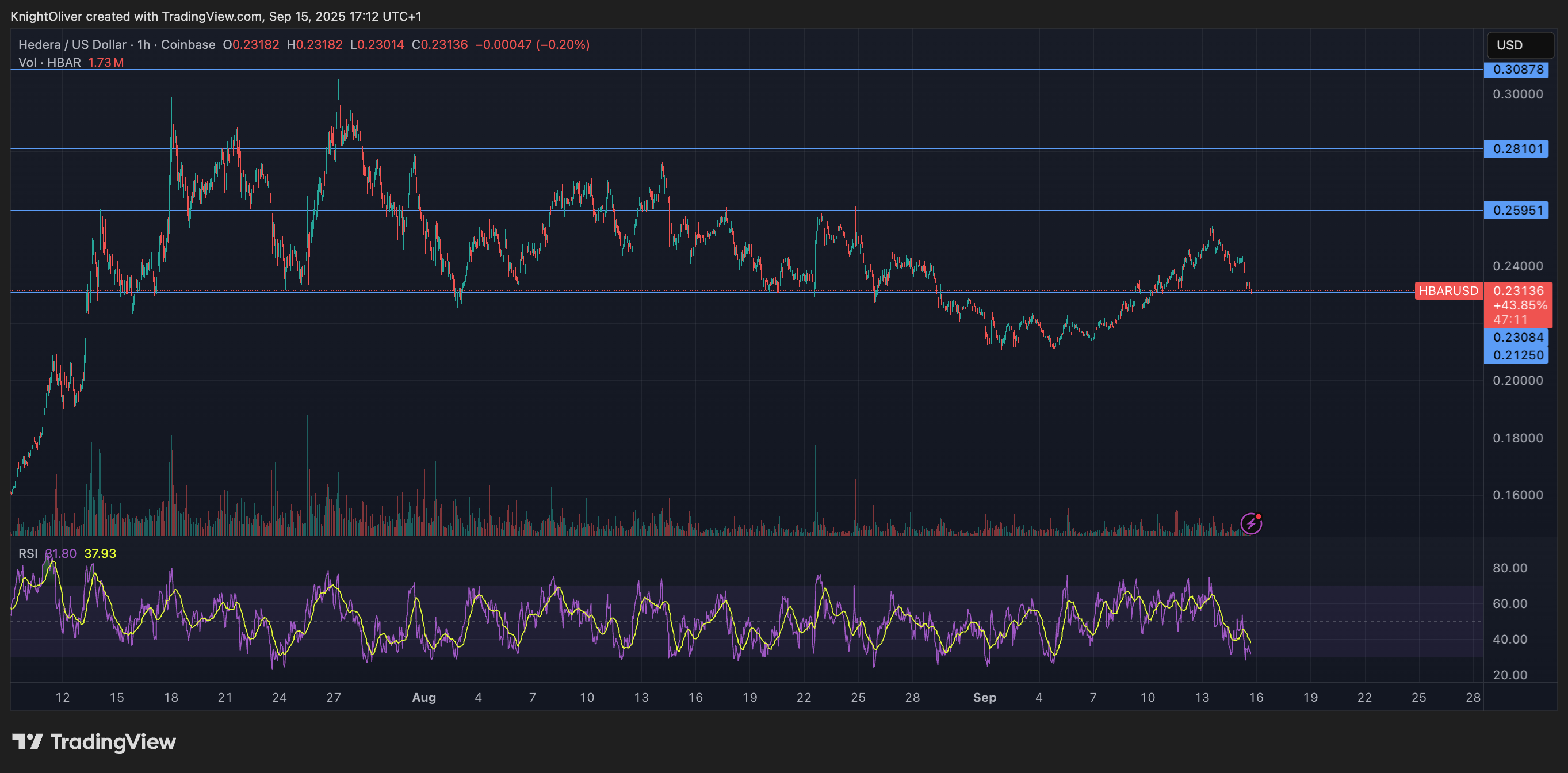Uncategorized
Will Argentinian President Milei’s Crypto ‘Fiasco’ be a Deathblow for Memecoin Craze?

The latest frenzy that started with U.S. President Donald Trump’s TRUMP memecoin launch and saw traders making and losing millions within minutes, might have finally come crashing down with the LIBRA token fiasco.
LIBRA, a Solana-based project that President of Argentina Javier Milei tweeted about on Feb. 14, saw its market cap rise as high as $4.5 billion and then fall more than 80% within a couple of hours as insiders cashed out, leaving many bag holders with massive losses.
The story became an international and political incident over the weekend when in the last couple of days, Milei deleted his original tweet, denied his endorsement and accused the political opposition of mischief. This eventually led to talks of his impeachment and created uncertainty in the Argentinian stock market. Then came an explosive twist to the story.
On Tuesday, CoinDesk broke the news that a key player behind the LIBRA token had bragged about buying access to Argentine President Javier Milei’s inner circle months before the memecoin’s scandalous launch and crash.
Although these kinds of kerfuffle for a memecoin are not unusual, how this happened and what followed after the apparent «rug pull» highlighted the risk of unchecked crypto trading and the potential for a reputational hit for the memecoin sector as a whole.
«The LIBRA episode represents what is a potential point of oversaturation for the memecoin space,» said Toronto-based crypto platform FRNT Financial. «At this point, the novelty of new projects, after TRUMP and MELANIA, and now LIBRA, has largely worn off.»
«Additionally, the reputational consequences for these assets may be significant. Having said that, it appears that this episode is likely to continue playing out as new details emerge. At this point, memecoins are synonymous with ‘pump and dump’ schemes,» FRNT contended.
This incident, along with other memecoin-related events that led to many retail traders losing money, may nudge the community to make more of an effort to police itself.
«The entire $LIBRA memecoin fiasco over the weekend should serve as a reminder that all of us in the DeFi community have a responsibility to make this space safer for users,» said Chris Chung, founder of Solana-based swap platform Titan.
How the ‘fiasco’ happened
The whole Milei and LIBRA episode played out within the span of a few days, starting on Feb. 14.
As explained by Galaxy Research’s Alex Thorn, the token launched on that fateful day on a Solana-based DeX Meteora, with Milei’s initial post (now deleted) on social media platform X saying that the aim of the token was to help the growth of the Argentinian economy — a big endorsement for a memecoin.
Once the token price reached its peak of $4.4 billion within hours, the insiders started dumping their holdings immediately, making nearly $100 million, according to onchain analysts.
The next day, Milei deleted his original post, sending a shockwave within the memecoin community, that saw many similar tokens, such as TRUMP, MILANIA, and others, sell out fast. Meanwhile, Solana, the blockchain the token was built on, also saw its native token, SOL, fall.
In his new post, Milei claimed he wasn’t aware of the details of the project and accused the political opposition of mischief, making the situation a game of politics. By that time, the token had erased around $4.5 billion of retail capital in seven hours. Currently, the market cap sits around just above half a million, according to CoinMarketCap data.
The same day, names of a few key opinion leaders (KOL) came up, including Barstool’s Dave Portnoy, Threadguy, Hayden Davis and Faze Banks, who were involved in one way or another with the project. Portnoy said he was an early investor and was refunded his money, further spreading the controversy that insiders benefitted from the LIBRA fiasco. Davis, meanwhile, revealed that he was behind both the LIBRA and MELANIA memecoins and said the Argentinian token incident was «not a rug pull,» rather «It’s just a plan gone miserably wrong.»
The next day, the Argentinian opposition threatened Milei with impeachment over the incident. On Feb. 17, Ben Chow, co-founder of DeX Meteora, where LIBRA had launched, resigned over the controversy. Chow was also a co-founder of Solana-based trading aggregator Jupiter. The same day Argentina’s stock market collapsed almost 6% on a report of a probe on Milei.

Read more: LIBRA Apparent Rug Pull Is Latest ‘Sordid Episode’ Emerging From Solana’s Memecoin Complex: Galaxy
On Feb. 18, CoinDesk broke the news that Davis claimed in text messages that he could «control» Milei because of payments he had been making to Karina Milei, a powerful figure in Milei’s government, and the president’s sister.
‘Setback for crypto’
What will happen to Milei and all the involved parties is still unknown. However, if FTX’s spectacular blowout is anything to go by, there might still be a lot more to untangle in this story.
What it does highlight is that the memecoin drama that has become a game of split-second profit and losses, in this cycle, might be at a crossroads. As institutional investors are betting big on bitcoin and ether with the launch of exchange-traded funds, making those assets more TradFi friendly and stable, the memecoin sector has stuck out as the ugly duckling of the crypto space, and this incident may sour retail participation.
«Overall, this entire story is a real setback for the crypto space,» Chung said. «If we want to attract new retail users, this is not the way to do it.»
Uncategorized
XLM Sees Heavy Volatility as Institutional Selling Weighs on Price

Stellar’s XLM token endured sharp swings over the past 24 hours, tumbling 3% as institutional selling pressure dominated order books. The asset declined from $0.39 to $0.38 between September 14 at 15:00 and September 15 at 14:00, with trading volumes peaking at 101.32 million—nearly triple its 24-hour average. The heaviest liquidation struck during the morning hours of September 15, when XLM collapsed from $0.395 to $0.376 within two hours, establishing $0.395 as firm resistance while tentative support formed near $0.375.
Despite the broader downtrend, intraday action highlighted moments of resilience. From 13:15 to 14:14 on September 15, XLM staged a brief recovery, jumping from $0.378 to a session high of $0.383 before closing the hour at $0.380. Trading volume surged above 10 million units during this window, with 3.45 million changing hands in a single minute as bulls attempted to push past resistance. While sellers capped momentum, the consolidation zone around $0.380–$0.381 now represents a potential support base.
Market dynamics suggest distribution patterns consistent with institutional profit-taking. The persistent supply overhead has reinforced resistance at $0.395, where repeated rally attempts have failed, while the emergence of support near $0.375 reflects opportunistic buying during liquidation waves. For traders, the $0.375–$0.395 band has become the key battleground that will define near-term direction.

Technical Indicators
- XLM retreated 3% from $0.39 to $0.38 during the previous 24-hours from 14 September 15:00 to 15 September 14:00.
- Trading volume peaked at 101.32 million during the 08:00 hour, nearly triple the 24-hour average of 24.47 million.
- Strong resistance established around $0.395 level during morning selloff.
- Key support emerged near $0.375 where buying interest materialized.
- Price range of $0.019 representing 5% volatility between peak and trough.
- Recovery attempts reached $0.383 by 13:00 before encountering selling pressure.
- Consolidation pattern formed around $0.380-$0.381 zone suggesting new support level.
Disclaimer: Parts of this article were generated with the assistance from AI tools and reviewed by our editorial team to ensure accuracy and adherence to our standards. For more information, see CoinDesk’s full AI Policy.
Uncategorized
HBAR Tumbles 5% as Institutional Investors Trigger Mass Selloff

Hedera Hashgraph’s HBAR token endured steep losses over a volatile 24-hour window between September 14 and 15, falling 5% from $0.24 to $0.23. The token’s trading range expanded by $0.01 — a move often linked to outsized institutional activity — as heavy corporate selling overwhelmed support levels. The sharpest move came between 07:00 and 08:00 UTC on September 15, when concentrated liquidation drove prices lower after days of resistance around $0.24.
Institutional trading volumes surged during the session, with more than 126 million tokens changing hands on the morning of September 15 — nearly three times the norm for corporate flows. Market participants attributed the spike to portfolio rebalancing by large stakeholders, with enterprise adoption jitters and mounting regulatory scrutiny providing the backdrop for the selloff.
Recovery efforts briefly emerged during the final hour of trading, when corporate buyers tested the $0.24 level before retreating. Between 13:32 and 13:35 UTC, one accumulation push saw 2.47 million tokens deployed in an effort to establish a price floor. Still, buying momentum ultimately faltered, with HBAR settling back into support at $0.23.
The turbulence underscores the token’s vulnerability to institutional distribution events. Analysts point to the failed breakout above $0.24 as confirmation of fresh resistance, with $0.23 now serving as the critical support zone. The surge in volume suggests major corporate participants are repositioning ahead of regulatory shifts, leaving HBAR’s near-term outlook dependent on whether enterprise buyers can mount sustained defenses above key support.

Technical Indicators Summary
- Corporate resistance levels crystallized at $0.24 where institutional selling pressure consistently overwhelmed enterprise buying interest across multiple trading sessions.
- Institutional support structures emerged around $0.23 levels where corporate buying programs have systematically absorbed selling pressure from retail and smaller institutional participants.
- The unprecedented trading volume surge to 126.38 million tokens during the 08:00 morning session reflects enterprise-scale distribution strategies that overwhelmed corporate demand across major trading platforms.
- Subsequent institutional momentum proved unsustainable as systematic selling pressure resumed between 13:37-13:44, driving corporate participants back toward $0.23 support zones with sustained volumes exceeding 1 million tokens, indicating ongoing institutional distribution.
- Final trading periods exhibited diminishing corporate activity with zero recorded volume between 13:13-14:14, suggesting institutional participants adopted defensive positioning strategies as HBAR consolidated at $0.23 amid enterprise uncertainty.
Disclaimer: Parts of this article were generated with the assistance from AI tools and reviewed by our editorial team to ensure accuracy and adherence to our standards. For more information, see CoinDesk’s full AI Policy.
Uncategorized
Dogecoin Inches Closer to Wall Street With First Meme Coin ETF

The first exchange-traded fund (ETF) built around a meme coin could hit the market this week, after multiple delays and much speculation.
The DOGE ETF — formally called the Rex Shares-Osprey Dogecoin ETF (DOJE) — was originally slated to debut last week, alongside a handful of politically themed and crypto-related ETFs. Those included funds tied to Bonk (BONK), XRP, Bitcoin (BTC) and even a Trump-themed fund. But DOJE’s debut never materialized.
Now, Bloomberg ETF analysts Eric Balchunas and James Seyffart believe Wednesday is the most likely launch date, though they caution nothing is certain.
“It’s more likely than not,” Seyffart said. “That seems like the base case.”
Ahead of the introduction of the ETF, DOGE has been among the top performers over the past month, ahead 15% even including a decline of 3.5% over the past 24 horus.
If launched, DOJE would mark a milestone as the first U.S. ETF to focus on a meme coin — cryptocurrencies that generally lack utility or a clear economic purpose. These include tokens like Dogecoin, Shiba Inu (SHIB) and Bonk, which often surge in popularity thanks to internet culture, celebrity endorsements and speculative trading.
Balchunas described DOJE’s significance in a post on X: “First-ever US ETF to hold something that has no utility on purpose.”
DOJE is not a spot ETF. That means it won’t hold DOGE directly. Instead, the fund will use a Cayman Islands-based subsidiary to gain exposure through futures and other derivatives. This approach sidesteps the need for physical custody of the coin while still offering traders a way to bet on its performance within a traditional brokerage account.
The ETF was approved earlier this month under the Investment Company Act of 1940, which is typically used for mutual funds and diversified ETFs. That sets it apart from the wave of bitcoin ETFs that received green lights under the Securities Act of 1933, a framework used for commodity-based and asset-backed products. In short, DOJE is structured more like a mutual fund than a commodity trust.
More direct exposure may be coming soon. Several firms have filed applications to launch spot DOGE ETFs, which would hold the meme coin itself rather than derivatives. These applications are still under review by the U.S. Securities and Exchange Commission (SEC), which has grown more comfortable with crypto ETFs since approving a slate of bitcoin products in early 2024.
The broader crypto market has shown that investor demand can outweigh fundamental critiques. Meme coins have long drawn skepticism for having no underlying value or use case, but that hasn’t kept them from drawing billions in speculative capital.
Seyffart said the ETF market is likely to follow the same path. “There’s going to be a bunch of products like this, whether you love it or need it, they’re going to be coming to market,” he said.
He added that many existing financial products serve no deeper purpose than providing a vehicle for short-term bets. “There’s plenty of products out there that are just being used as gambling or short-term trading,” he said. “So if there’s an audience for this in the crypto world, I wouldn’t be surprised at all if this finds an audience in the ETF and TradFi world.”
Whether the DOJE ETF opens the door to more meme coin funds — or just proves the concept is viable — may depend on how the market responds this week. Either way, it signals a new phase in the merging of internet culture and traditional finance.
-

 Business11 месяцев ago
Business11 месяцев ago3 Ways to make your business presentation more relatable
-

 Fashion11 месяцев ago
Fashion11 месяцев agoAccording to Dior Couture, this taboo fashion accessory is back
-

 Entertainment11 месяцев ago
Entertainment11 месяцев ago10 Artists who retired from music and made a comeback
-

 Entertainment11 месяцев ago
Entertainment11 месяцев ago\’Better Call Saul\’ has been renewed for a fourth season
-

 Entertainment11 месяцев ago
Entertainment11 месяцев agoNew Season 8 Walking Dead trailer flashes forward in time
-

 Business11 месяцев ago
Business11 месяцев ago15 Habits that could be hurting your business relationships
-

 Entertainment11 месяцев ago
Entertainment11 месяцев agoMeet Superman\’s grandfather in new trailer for Krypton
-

 Entertainment11 месяцев ago
Entertainment11 месяцев agoDisney\’s live-action Aladdin finally finds its stars





